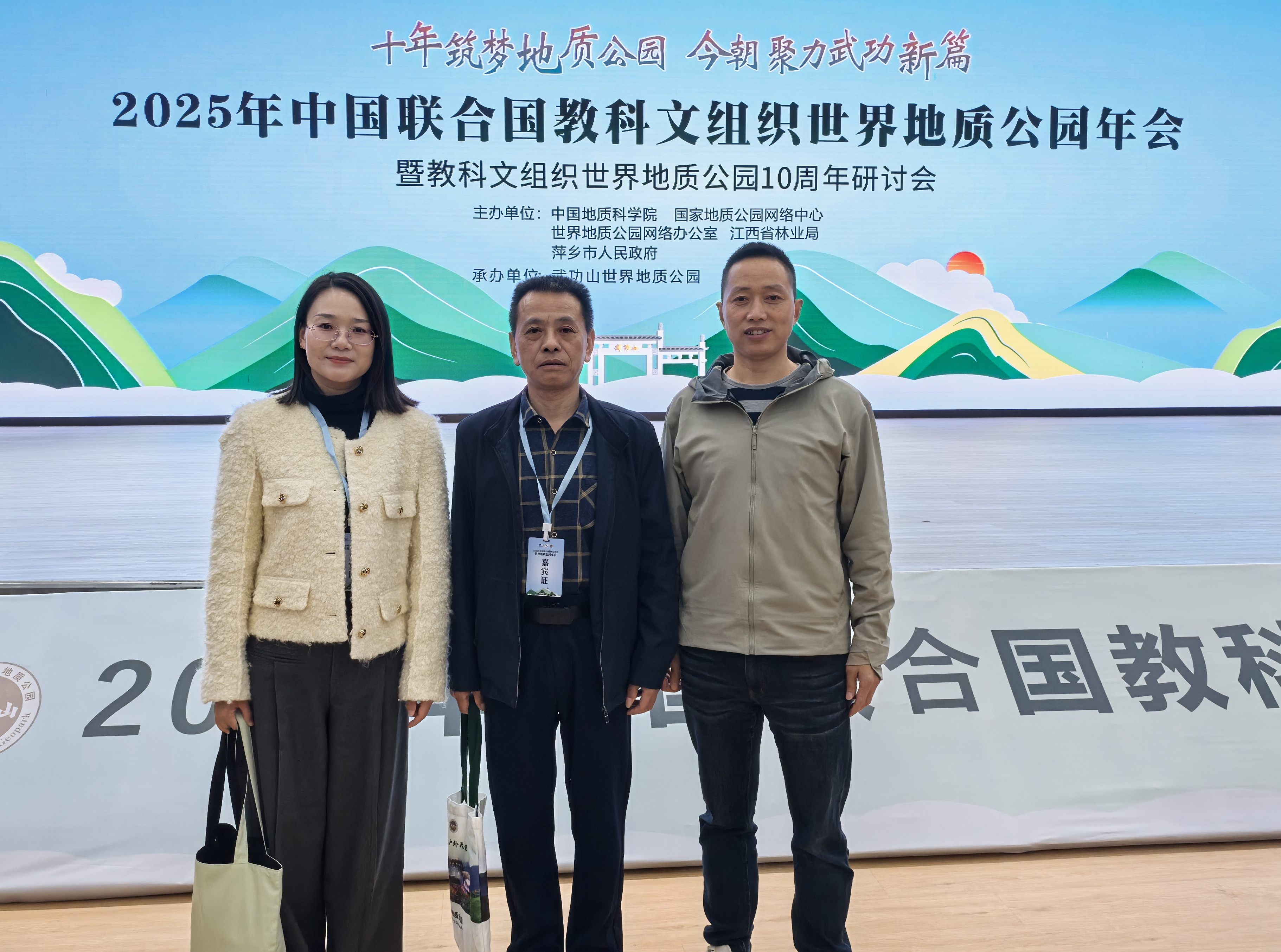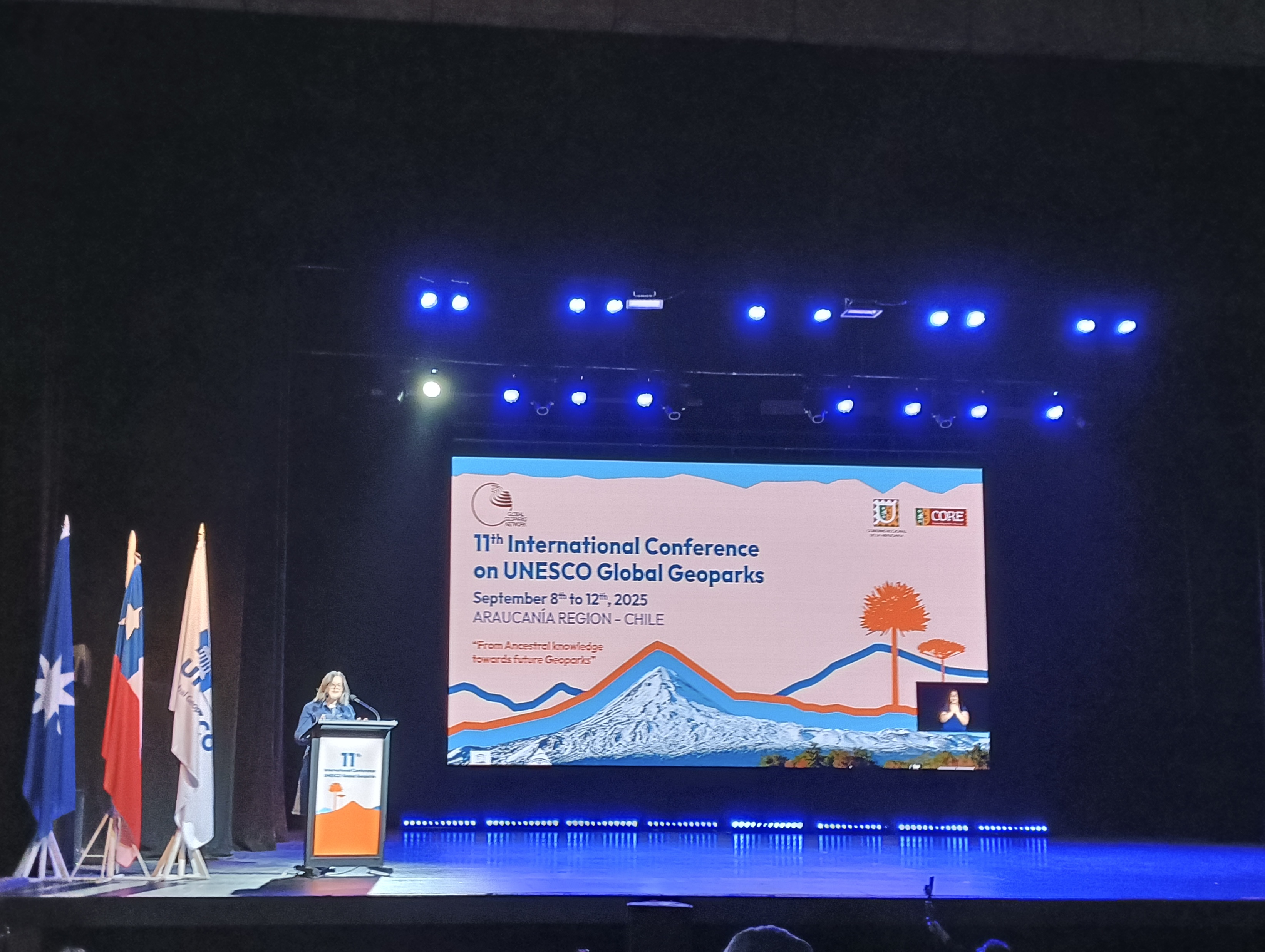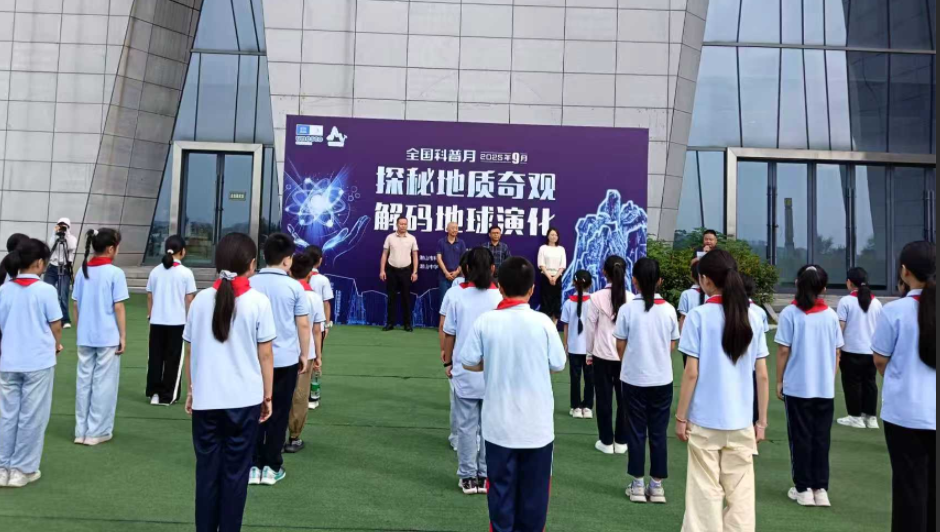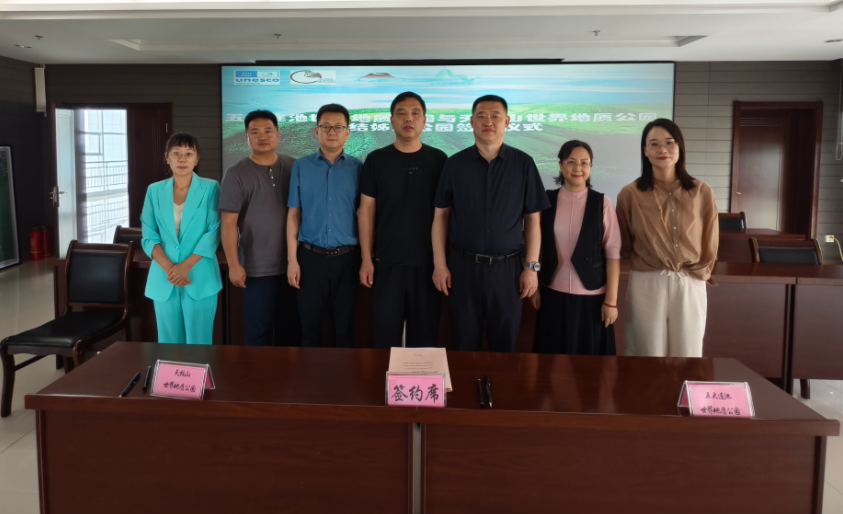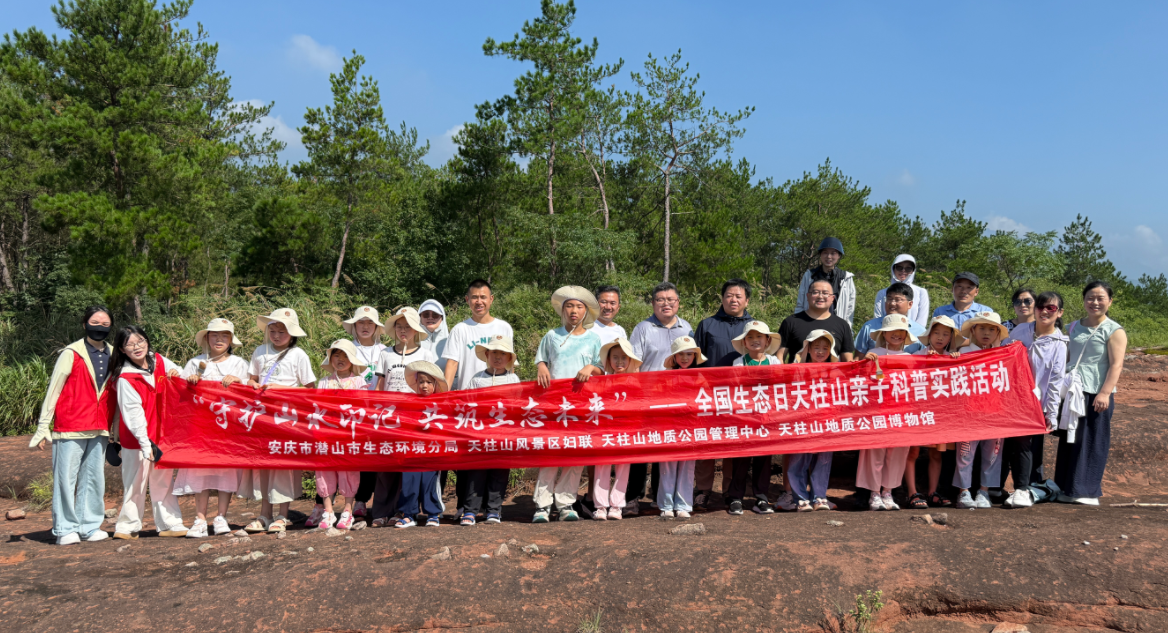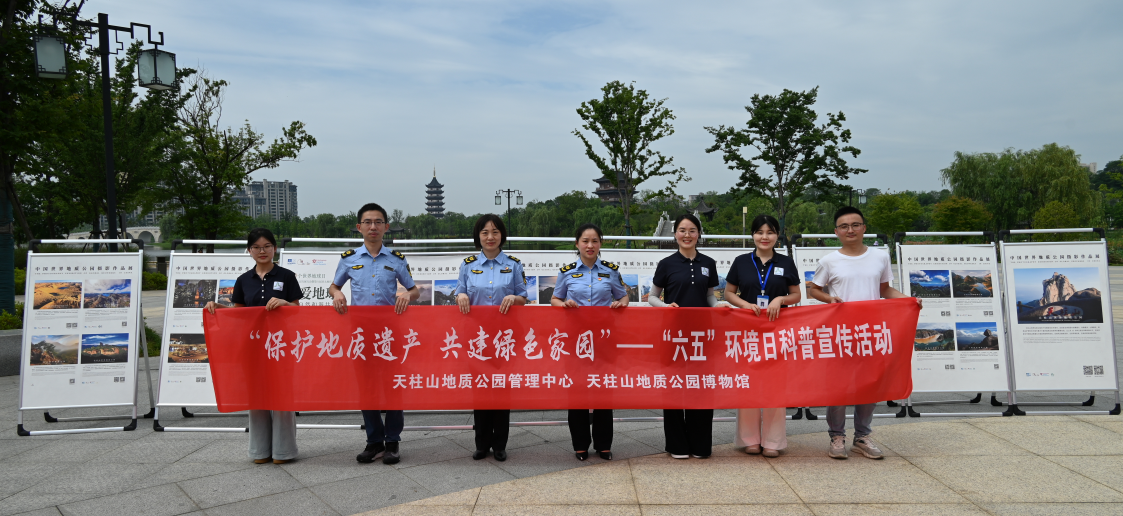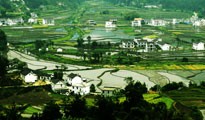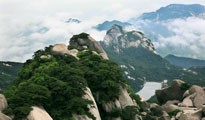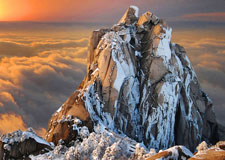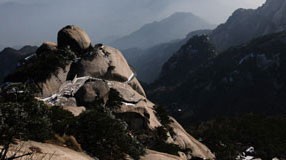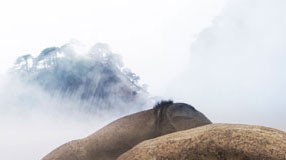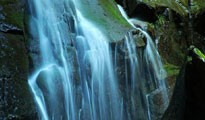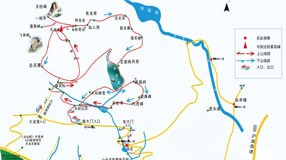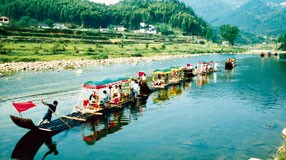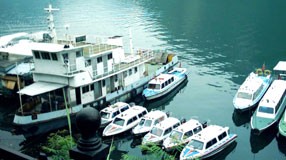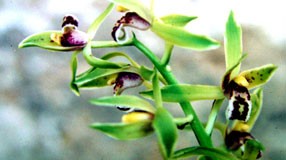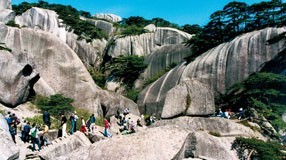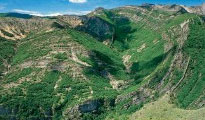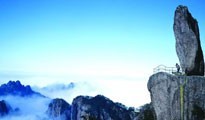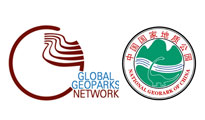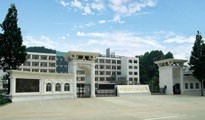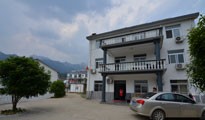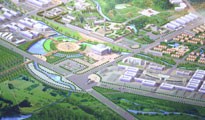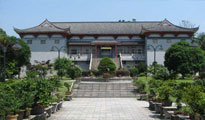
- Huangshan UNESCO Global Geopark
- Naturtejo UNESCO Global Geopark, Portugal
- Central Catalonia UNESCO Global Geopark, Spain
- Jiuhuashan UNESCO Global Geopark
- Yandangshan UNESCO Global Geopark
- Sanqingshan UNESCO Global Geopark
- Longhushan UNESCO Global Geopark
- Terra Vita UNESCO Global Geopark, Germany
- Huanggang Dabieshan UNESCO Global Geopark
- Fangshan UNESCO Global Geopark
- English Riviera UNESCO Global Geopark
- Guangwushan-Nuoshuihe UNESCO Global Geopark
- Zhijingdong Cave UNESCO Global Geopark
- Dali-Cangshan UNESCO Global Geopark
- Xiangxi UNESCO Global Geopark
- Yuntaishan UNESCO Global Geopark
- Linxia UNESCO Global Geopark
- Kanbula UNESCO Global Geopark
- Wudalianchi UNESCO Global Geopark
- Changbaishan UNESCO Global Geopark
STATUTES OF THE INTERNATIONAL GEOSCIENCE AND GEOPARKS PROGRAMME
Pubdate:10/18/2018 ThursdayCategory:
STATUTES OF THE INTERNATIONAL GEOSCIENCE
AND GEOPARKS PROGRAMME
The International Geoscience and Geoparks Programme (IGGP) shall be implemented through two
activities: the International Geoscience Programme, a co-operative venture with the International
Union of Geological Sciences (IUGS), and the UNESCO Global Geoparks. They shall coordinate
their work through a shared UNESCO Secretariat and joint coordination meetings of their
respective Bureaux which will convene as necessary. The chairpersons of the two respective
Councils will co-chair the IGGP.
These Statutes may be amended by the General Conference of UNESCO on its own initiative or
on the proposal of the Director-General of UNESCO.
Part A: The International Geoscience Programme
Article 1: International Geoscience Programme
The International Geoscience Programme (IGCP) as part of the IGGP fosters interdisciplinary
geoscientific research among researchers internationally, through joint research work, meetings
and workshops. Since its creation in 1972, IGCP has supported over 350 projects in about
150 countries. IGCP brings together scientists from around the world, and provides them with seed
money to devise and conduct joint international research and to collectively publish the results.
High on the list of selection criteria are scientific quality and the extent of the international,
multidisciplinary cooperation likely to be generated by a proposed project.
Article 2: International Geoscience Programme Council
2.1 A Council is hereby set up for the International Geoscience Programme (hereinafter referred
to as the “IGCP”).
2.2 The Council shall be composed of six ordinary members, with the right to vote, appointed by
mutual agreement by the Director-General of UNESCO and the President of the IUGS. The
Director-General of UNESCO and the Secretary-General of the IUGS or their representatives
shall be ex officio members of the Council without the right to vote.
2.3 Ordinary members appointed to the Council shall be high-level experts actively engaged in
scientific research related to the objectives of the IGCP, taking into account an equitable
geographical distribution and gender equality. They shall serve in a personal capacity, not as
representatives of their respective states or any other affiliated entities. They will be required
to ensure that they have no conflict of interest and that they will not seek or accept
instructions from governments or other authorities.
2.4 Ordinary members of the Council shall be appointed for a term of four years, renewable
once. Every two years, half the membership of the Council shall be renewed. When
appointing the initial members of the Council, the Director-General of UNESCO shall indicate
those whose initial term shall expire after two years.
2.5 In case an ordinary member resigns or is unable to serve, she/he may be replaced for the
remainder of her/his term in accordance with the procedure defined above.
2.6 The Council shall be responsible for advising the Director-General of UNESCO and the
President of IUGS on the strategy, planning and implementation of the IGCP and specifically
for:
(a) supervising the implementation of IGCP from the organizational and from the scientific
points of view;
(b) studying proposals concerning developments and modifications of the programme;
(c) recommending scientific projects of interest to IGCP member countries;
(d) coordinating international cooperation in the framework of IGCP;
(e) assisting in the development of national and regional projects related to IGCP;
(f) recommending any measures that may be required for the successful implementation
of the programme;
(g) coordinating IGCP with related international programmes.
2.7 In carrying out its activities, the Council may make full use of the facilities offered by
UNESCO, IUGS, other international organizations, governments and foundations. The
Council may also consult on scientific questions all appropriate international or national
governmental or non-governmental scientific organizations and, in particular, the
International Council for Science (ICSU).
2.8 After each session, the Council shall present a report on its work and its recommendations to
the Bureau referred to in Article 4 below. The report will be circulated to IUGS, Member
States and Associate Member States of UNESCO.
2.9 The Council shall submit a report, on the progress of the IGCP, for each session of the
General Conference of UNESCO, as part of a joint report of the IGGP, and shall report
annually to the Executive Committee of IUGS.
2.10 The Council shall adopt its own rules of procedure.
Article 3: International Geoscience Programme Council Sessions
3.1 The Council shall meet at least once a year at the invitation of UNESCO and the IUGS. The
meetings of the Council shall, unless the Council decides otherwise, be held in public.
3.2 Member States and Associate Members of UNESCO and adhering bodies of the IUGS will
be invited to send observers to the public sessions of the Council.
3.3 The United Nations and other organizations of the United Nations system with which
UNESCO has concluded mutual representation agreements may be represented at sessions
of the Council.
3.4 The Director-General of UNESCO may extend invitations to send observers to sessions of
the Council to:
(a) organizations of the United Nations system with which UNESCO has not concluded
mutual representation agreements;
(b) intergovernmental organizations;
(c) international non-governmental organizations, in accordance with the Directives
concerning UNESCO’s partnership with non-governmental organizations.
3.5 Representatives of the Scientific Board referred to in Article 5 below may also attend
sessions of the Council in accordance with arrangements to be made by UNESCO and the
IUGS.
3.6 Observers of interested international scientific organizations may be invited to attend
sessions of the Council in accordance with the regulations and rules in force in UNESCO and
in the IUGS.
3.7 Representatives and observers referred to in Articles 3.2 to 3.6 above shall not have the right
to vote.
3.8 At the beginning of its ordinary session subsequent to the appointment of new members in
accordance with Article 2.4 above, the Council shall elect a Chairperson, a Vice-Chairperson
and a Rapporteur who shall remain in office for two years.
Article 4: International Geoscience Programme Bureau
4.1 A Bureau is hereby set up for the IGCP.
4.2 The Bureau will consist of five members: the Chairperson, the Vice-Chairperson and the
Rapporteur of the Council of the IGCP. The Director-General of UNESCO and the Secretary-
General of IUGS or their representatives shall be ex officio members of the Bureau without
the right to vote.
4.3 Its duties will be:
(a) to make the final decisions on IGCP project proposals and levels of funding;
(b) to hold joint coordination meetings as required with the Bureau of the UNESCO Global
Geoparks.
4.4 The Bureau shall adopt its own rules of procedure.
4.5 The report of the sessions of the Bureau will be circulated to the Council and to Member
States and Associate Member States of UNESCO.
Article 5: Scientific Board
5.1 The Council shall be assisted in its scientific duties by a Scientific Board established for this
purpose jointly by UNESCO and IUGS on the recommendation of the Council.
5.2 The functions of the Scientific Board shall be to evaluate project proposals in terms of their
scientific merit, their financial needs, their economic and social interest and their
appropriateness to the general scope of the programme, and to make recommendations
concerning them to the Council. The Council shall define the terms of reference of the
Scientific Board.
Article 6: Secretariat
6.1 The secretariat for the IGCP shall be provided by UNESCO and by IUGS, if the latter so
desires, and shall furnish the necessary services for all sessions of the Council and of its
Bureau.
6.2 The Director-General of UNESCO shall take the steps required for the convening of the
sessions of the Council.
Part B: UNESCO Global Geoparks
Article 1: UNESCO Global Geoparks
UNESCO Global Geoparks, within the IGGP, are the mechanism of international cooperation by
which areas of geological heritage of international value, through a bottom-up approach to
conserving that heritage, support each other to engage with local communities to promote
awareness of that heritage and adopt a sustainable approach to the development of the area.
Through the IGGP, these areas can apply to UNESCO, for designation as a “UNESCO Global
Geopark”, drawing upon the broader mandate of the Organization.
Article 2: UNESCO Global Geoparks Council
2.1 A Council is hereby set up for the UNESCO Global Geoparks.
2.2 The Council shall be composed of 12 ordinary members, with the right to vote, who shall be
individuals appointed by the Director-General of UNESCO on recommendation of the Global
Geoparks Network (GGN) and of Member States. In addition the Director-General of
UNESCO, the President of the GGN, the Secretary-General of the IUGS, the Director-
General of the IUCN or their representatives shall be ex officio members of the Council
without the right to vote.
2.3 Ordinary Members appointed to the Council shall be high-profile experts chosen for their
proven experience, scientific or professional qualifications in relevant fields, taking into
account an equitable geographical distribution and gender equality. They shall serve in a
personal capacity, not as representatives of their respective States or any other affiliated
entities. They will be required to ensure that they have no conflict of interest and that they will
not seek or accept instructions from governments or other authorities.
2.4 The term of office of ordinary members of the Council shall be four years, renewable once.
Every two years, half the membership of the Council shall be renewed. When appointing the
initial members of the Council, the Director-General of UNESCO shall indicate those whose
initial term shall expire after two years.
2.5 In case an ordinary member resigns or is unable to serve, she/he may be replaced for the
remainder of her/his term in accordance with the procedure defined above.
2.6 The Council shall be responsible for advising the Director-General of UNESCO on the
strategy, planning and implementation of UNESCO Global Geoparks and specifically:
(a) raising and allocating funds;
(b) cooperation among the UNESCO Global Geoparks and with other relevant
programmes.
2.7 The Council shall be responsible for assessing revalidated and new UNESCO Global
Geopark nominations received from designated bodies in Member States as described in the
operational guidelines. It shall also be responsible for making decisions on whether new
applications should be forwarded to the Executive Board for endorsement. The Council
decisions concerning new UNESCO Global Geopark nominations will be submitted to the
UNESCO Executive Board for their endorsement in a document prepared by the Bureau of
the Geoparks Council together with the UNESCO Secretariat. All extensions will follow the
same procedure for endorsement as a new nomination.
2.8 The Council shall be responsible to accredit extensions for revalidated UNESCO Global
Geoparks.
2.9 Decisions of the Council are not open for appeal.
2.10 After each session, the Council shall present a report on its work and its decisions to the
Bureau, referred to in Article 4 below. The report will be circulated to Member States and
Associate Member States of UNESCO.
2.11 The Council shall submit a report, on the progress of the UNESCO Global Geoparks for each
session of the General Conference of UNESCO, as part of a joint report of the IGGP.
2.12 The Council shall establish its own rules of procedure.
Article 3: UNESCO Global Geoparks Council Sessions
3.1 The Council will meet annually in ordinary session, when possible during a regional or
international conference on UNESCO Global Geoparks. All costs related to the sessions of
the Council will be borne by the inviting UNESCO Global Geopark or any other conference
organizers. In the event of no such conference the session will either be deferred, held
remotely or held at UNESCO Headquarters subject to available resources.
3.2 The Council may convene extraordinary sessions, the costs of which will be covered by
extrabudgetary resources.
3.3 Member States and Associate Members of UNESCO will be able to send observers to
sessions of the Council.
3.4 The United Nations and other organizations of the United Nations system with which
UNESCO has concluded mutual representation agreements may be represented at sessions
of the Council.
3.5 The Director-General of UNESCO may extend invitations to send observers to sessions of
the Council to:
(a) organizations of the United Nations system with which UNESCO has not concluded
mutual representation agreements;
(b) intergovernmental organizations;
(c) international non-governmental organizations, in accordance with the Directives
concerning UNESCO's partnership with non-governmental organizations.
3.6 Representatives and observers referred to in Articles 3.3 to 3.5 above shall not have the right
to vote.
3.7 At the beginning of its ordinary sessions subsequent the appointment of new members in
accordance with Article 2.4 above, the Council shall elect a Chairperson, a Vice-Chairperson
and a Rapporteur who shall remain in office for two years.
Article 4: UNESCO Global Geoparks Bureau
4.1 A Bureau is hereby setup for the UNESCO Global Geoparks.
4.2 The Bureau will consist of five members: the Chairperson, the Vice-Chairperson and the
Rapporteur of the Council of the UNESCO Global Geoparks. The Director-General of
UNESCO and the President of the GGN or their representatives shall be ex officio members
of the Bureau without the right to vote.
4.3 Its duties will be:
(a) to prepare with the Secretariat the necessary documentation for the Executive Board of
UNESCO in order for it to be able to provide a final endorsement of new UNESCO
Global Geoparks nominations and extensions based on decisions of the Council;
(b) to hold joint coordination meetings as required with the Bureau of the International
Geoscience Programme (IGCP);
(c) to select the evaluation team for each application and revalidation.
4.4 The Bureau shall adopt its own rules of procedure.
4.5 The report of the sessions of the Bureau will be circulated to the Council and to Member
States and Associate Member States of UNESCO.
Article 5: Evaluation Teams
5.1 Evaluation Teams shall independently:
(a) evaluate applications, extensions and revalidations for UNESCO Global Geoparks on
the basis of the strict guidelines provided by the Council;
(b) prepare a report to the Council on the applications, extensions and revalidations
evaluated.
5.2 The Secretariat in conjunction with GGN shall maintain a roster of evaluators.
5.3 Members of each Evaluation Team will be chosen by the Bureau from the roster of
evaluators.
5.4 Evaluators will serve in their personal capacity, not as representatives of their respective
States or any other affiliated entities. The GGN will be required to ensure that evaluators
have no conflict of interest regarding new UNESCO Global Geopark applications or those
requiring revalidation. Evaluators will not seek or accept instructions from governments or
other authorities and will not conduct missions in their own country.
Article 6: Secretariat
6.1 The Secretariat of the UNESCO Global Geoparks shall be provided by UNESCO.
6.2 The Director-General shall take the steps required for the convening of the sessions of the
Council.
OPERATIONAL GUIDELINES FOR UNESCO GLOBAL GEOPARKS
1. INTRODUCTION
The Geopark concept arose in the mid-1990s as a response to the need to conserve and enhance
the value of areas of geological significance in Earth history. Landscapes and geological
formations are key witnesses to the evolution of our planet and determinants for our future
sustainable development. From the outset, Geoparks adopted a “bottom-up” or community-led
approach to ensure that an area’s geological significance could be conserved and promoted for
science, education and culture, in addition to being used as a sustainable economic asset such as
through the development of responsible tourism. In 2004, with the support of UNESCO,
17 members of the European Geoparks Network and eight Chinese Geoparks came together to
create the Global Geoparks Network (GGN) which, with then more than 100 Global Geoparks as
members, acquired legal status in 2014.
A UNESCO Global Geopark must contain geology of international significance. It is independently
evaluated by scientific professionals in the relevant discipline of Earth Science. UNESCO Global
Geoparks are living, working landscapes where science and local communities engage in a
mutually beneficial way.
Education at all levels is at the core of the UNESCO Global Geopark concept. From university
researchers to local community groups, UNESCO Global Geoparks encourage awareness of the
story of the planet as read in the rocks, landscape and ongoing geological processes. UNESCO
Global Geoparks also promote the links between geological heritage and all other aspects of the
area’s natural and cultural heritage, clearly demonstrating that geodiversity is the foundation of all
ecosystems and the basis of human interaction with the landscape.
UNESCO Global Geoparks contribute to achieving UNESCO’s objectives by promoting geology
and science in general through a wider contribution to UNESCO’s mandate while cutting across
education, culture and communication.
2. THE BASIC CONCEPTS
2.1 UNESCO Global Geoparks within UNESCO’s International Geoscience and Geoparks
Programme
UNESCO Global Geoparks, within UNESCO’s International Geoscience and Geoparks
Programme (IGGP), encourage international cooperation between areas with geological heritage
of international value, through a bottom-up approach to conservation, local community support,
promotion of heritage and sustainable development of the area. Through the IGGP, these areas
apply to UNESCO as the only United Nations organization with a remit in the Earth Sciences to
designate as a “UNESCO Global Geopark”, which draws upon the broader mandate of the
Organization.
2.2 UNESCO Global Geoparks
UNESCO Global Geoparks are single, unified geographical areas where sites and landscapes of
international geological significance are managed with a holistic concept of protection, education
and sustainable development. The international geological significance of a UNESCO Global
Geopark is determined by scientific professionals, as part of a “UNESCO Global Geopark
Evaluation Team”, who make a globally comparative assessment based on the peer-reviewed,
published research conducted on geological sites within the area. UNESCO Global Geoparks use
geological heritage, in connection with all other aspects of that area’s natural and cultural heritage,
to enhance awareness and understanding of key issues facing society in the context of the
dynamic planet we all live on.
2.3 Use of logos
UNESCO Global Geoparks will be entitled to use a “linked logo” to be developed for UNESCO
Global Geoparks. This use will be governed under the 2007 “Directives concerning the use of the
name, acronym, logo and Internet domain names of UNESCO” or by any subsequent directive.
2.4 Geographical representation
As part of UNESCO, the IGGP is committed to promote balanced global geographical
representation for UNESCO Global Geoparks.
3. CRITERIA FOR UNESCO GLOBAL GEOPARKS
(i) UNESCO Global Geoparks must be single, unified geographical areas where sites and
landscapes of international geological significance are managed with a holistic concept
of protection, education, research and sustainable development. A UNESCO Global
Geopark must have a clearly defined border, be of adequate size to fulfil its functions
and contain geological heritage of international significance as independently verified
by scientific professionals.
(ii) UNESCO Global Geoparks should use that heritage, in connection with all other
aspects of that area’s natural and cultural heritage, to promote awareness of key
issues facing society in the context of the dynamic planet we all live on, including but
not limited to increasing knowledge and understanding of: geoprocesses; geohazards;
climate change; the need for the sustainable use of Earth’s natural resources; the
evolution of life and the empowerment of indigenous peoples.
(iii) UNESCO Global Geoparks should be areas with a management body having legal
existence recognized under national legislation. The management bodies should be
appropriately equipped to adequately address the area of the UNESCO Global
Geopark in its entirety.
(iv) In the case where an applying area overlaps with another UNESCO designated site,
such as a World Heritage Site or Biosphere Reserve, the request must be clearly
justified and evidence must be provided for how UNESCO Global Geopark status will
add value by being both independently branded and in synergy with the other
designations.
(v) UNESCO Global Geoparks should actively involve local communities and indigenous
peoples as key stakeholders in the Geopark. In partnership with local communities, a
co-management plan needs to be drafted and implemented that provides for the social
and economic needs of local populations, protects the landscape in which they live and
conserves their cultural identity. It is recommended that all relevant local and regional
actors and authorities be represented in the management of a UNESCO Global
Geopark. Local and indigenous knowledge, practice and management systems should
be included, alongside science, in the planning and management of the area.
(vi) UNESCO Global Geoparks are encouraged to share their experience and advice and
to undertake joint projects within the GGN. Membership of GGN is obligatory.
(vii) A UNESCO Global Geopark must respect local and national laws relating to the
protection of geological heritage. The defining geological heritage sites within a
UNESCO Global Geopark must be legally protected in advance of any application. At
the same time, a UNESCO Global Geopark should be used as leverage for promoting
the protection of geological heritage locally and nationally. The management body must
not participate directly in the sale of geological objects such as fossils, minerals,
polished rocks and ornamental rocks of the type normally found in so-called “rock-
shops” within the UNESCO Global Geopark (regardless of their origin) and should
actively discourage unsustainable trade in geological materials as a whole. Where
clearly justified as a responsible activity and as part of delivering the most effective and
sustainable means of site management, it may permit sustainable collecting of
geological materials for scientific and educational purposes from naturally renewable
sites within the UNESCO Global Geopark. Trade of geological materials based on such
a system may be tolerated in exceptional circumstances, provided it is clearly and
publicly explained, justified and monitored as the best option for the Global Geopark in
relation to local circumstances. Such circumstances will be subject to approval by the
UNESCO Global Geoparks Council on a case by case basis.
(viii) These criteria are verified through checklists for evaluation and revalidation.
4. THE INSTITUTIONAL STRUCTURE AND FUNCTIONS
4.1 UNESCO Global Geoparks Council
The Council is the decision-making body for new UNESCO Global Geopark applications and
revalidations and it is responsible for advising the Director-General on the strategy planning and
implementation of the Global Geoparks activity of the IGGP. The Council is composed of
12 ordinary members, with the right to vote, who are individuals appointed by the Director-General
of UNESCO on recommendation of GGN and Member States. In addition, the Director-General of
UNESCO, the President of GGN, the Secretary-General of IUGS, the Director-General of IUCN or
their representatives shall be ex officio members of the Council without the right to vote. Ordinary
Members appointed to the Council shall be high-profile experts chosen for their proven experience,
scientific or professional qualification in relevant fields, taking into account an equitable
geographical distribution and gender equality. Ordinary members will serve in their personal
capacity, not as representatives of their respective States or any other affiliated entities. Council
members will have to agree in writing that they will abstain in cases of conflict of interest regarding
new UNESCO Global Geopark applications or those requiring revalidation.
4.2 UNESCO Global Geoparks Bureau
The Bureau will consist of five members: the Chairperson, the Vice-Chairperson and the
Rapporteur of the Council of the UNESCO Global Geoparks. The Director-General of UNESCO
and the President of the Global Geoparks Network (GGN) or their representatives shall be ex
officio members of the Bureau without the right to vote.
Its main duty will be to prepare with the secretariat the necessary documentation for the Executive
Board of UNESCO to provide a final endorsement of new UNESCO Global Geopark nominations
based on decisions of the Council. The UNESCO Global Geoparks Bureau will hold joint
coordination meetings with the Bureau of the International Geoscience Programme (IGCP).
4.3 UNESCO Global Geoparks Evaluation Team
UNESCO Global Geoparks will be evaluated – both during the initial application and during
revalidation – by an independent team composed of desk-top advisors and evaluators carrying out
field missions.
The international significance of the geological heritage of each new UNESCO Global Geopark
application will be assessed by desk-top advisors following specific and publicly available scientific
criteria. IUGS will be asked to coordinate this role and to ensure that all statements on the scientific
value and international significance of the geological heritage of an aspiring UNESCO Global
Geopark are available annually in time so that evaluators can access them ahead of the field
evaluation mission. Other organizations may also be involved as appropriate.
The UNESO Secretariat in conjunction with the GGN will establish and maintain a roster of
evaluators who will undertake field evaluations of new applications for aspiring UNESCO Global
Geoparks. These evaluators will have combined and proven professional experience relevant for
Global Geopark development (geological heritage, conservation, sustainable development, tourism
development and promotion, and environmental issues). These evaluators will also conduct
revalidation missions.
Evaluators for UNESCO Global Geoparks must follow strict guidelines provided by the Council for
new application and revalidation missions. These evaluators will serve in their personal capacity,
not as representatives of their respective States or any other affiliated entities. GGN will be
required to ensure that evaluators have no conflict of interest regarding new UNESCO Global
Geopark applications or those requiring revalidation. Evaluators will not seek or accept instructions
from governments or other authorities and will not conduct missions in their own country. If any
National Geopark Committee seeks to observe an evaluation or revalidation mission, it will be fully
up to the evaluators which observations and information provided they will include into their final
reports. They are expected to submit their reports to UNESCO in a timely manner. Evaluators will
not have the status of “experts on mission” pursuant to the Convention on the Privileges and
Immunities of the United Nations of 1946.
4.4 National Geopark Committees
Member States should play an active role in the development of their UNESCO Global Geoparks.
As such, and only if the Member State wishes to do so, the creation of a National Geopark
Committee is recommended. These “National Committees” could be named differently, for
example, National Forum, National Task Force or Task Group. These committees may be created
by the competent entity in charge of Geoparks in that Member State. The committees must be
recognized by that Member State’s National Commission for UNESCO or the relevant government
body in charge of relations with UNESCO. These committees should also liaise with existing
national committees for the IGCP where applicable.
Possible balanced National Geopark Committee composition:
• Representative(s) of the National Commission for UNESCO and/or the relevant
government body in charge of relations with UNESCO;
• Representative(s) of the national geological organization or survey;
• Representative(s) of the national environmental/protected area organization;
• Representative(s) of the national cultural heritage body;
• Representative(s) of the national tourism organization;
• Representative(s) of the national committee for IGCP;
• Representatives from UNESCO Global Geoparks, where they exist, in that Member State
(possibly rotating in countries with many UNESCO Global Geoparks); and
• Different and additional members may be included as seen appropriate to fit the particular
national context.
Its work at national level may consist of:
• Coordinating the national contribution to UNESCO Global Geoparks within the IGGP;
• Identifying the geological heritage and raising public awareness of its importance;
• Promoting the development of new UNESCO Global Geoparks, assessing and endorsing
applications, revalidations and extensions;
• Observing any evaluation or revalidation mission in that Member State should they wish
to;
• Presenting to that Member State’s National Commission for UNESCO or the relevant
government body in charge of relations with UNESCO all UNESCO Global Geopark
applications, which will then be forwarded to UNESCO.
• Ensuring the proper withdrawal of the area as a UNESCO Global Geopark within the
IGGP, should the area so wish or should they fail the revalidation process;
• Promoting international cooperation between UNESCO Global Geoparks;
• Providing information at the national level about the global and regional networks of
UNESCO Global Geoparks;
• Initiating and supporting strategies and actions for sustainable development in and among
UNESCO Global Geoparks.
These Operational Guidelines for UNESCO Global Geoparks represent best practice. Member
States through their National Geopark Committees are entitled to formulate additional, more
specific guidelines on a national basis to fit a particular national context.
The UNESCO Secretariat will liaise closely with National Geopark Committees and Member
State’s National Commission for UNESCO or the relevant government body in charge of relations
with UNESCO at all stages during the evaluation and revalidation processes of aspiring and
existing UNESCO Global Geoparks.
All applications and revalidations must be accompanied by a letter of support from the National
Commission for UNESCO or the relevant government body in charge of relations with UNESCO.
4.5 Regional and Global Geopark networks
From the start of the development of the concept, networking has been one of the core principles
of Geoparks. Networking strongly contributes to the success of the Geoparks movement and plays
a valuable role in facilitating the sharing of experience, quality management, formation of joint
initiatives and projects and capacity-building. UNESCO encourages the strengthening of regional
Geopark networks and the GGN. UNESCO, inspired by the work of Geopark networks, will
continue to offer its support and assistance to such networks, will coordinate capacity-building for
UNESCO Global Geoparks and will encourage exchange of best practice between UNESCO
Global Geoparks.
5. THE APPLICATION PROCEDURE
5.1 Introduction
An aspiring Global Geopark can apply to UNESCO for designation through a rigorous procedure,
the precise details and deadlines of which are available on the UNESCO website.
5.2 Nomination
Ahead of any formal application, any aspiring UNESCO Global Geopark should submit an
expression of interest via the official channel as defined by the National Commission for UNESCO
or the government body in charge of relations with UNESCO, involving, if applicable, the National
Geoparks Committee.
A comprehensive and carefully formatted application dossier (including supporting material to
demonstrate that the area has already been functioning as a de facto Global Geopark for at least
one year) should be submitted through the official channel as defined by the National Commission
for UNESCO or the government body in charge of relations with UNESCO to the UNESCO
Secretariat involving, if applicable, the National Geoparks Committee. This should be accompanied
by an explicit endorsement of any relevant local and regional authorities and a letter of support
from the National Commission for UNESCO or the government body in charge of relations with
UNESCO. The UNESCO Secretariat shall involve the main national contact point in all
communication with the aspiring Global Geopark, including the findings of the field evaluation
mission, the outcome of the decisions of the Council, and the endorsement by the UNESCO
Executive Board.
In order to ensure a balanced geographical representation of UNESCO Global Geoparks, the
number of “active” applications is limited to two per Member State. An application is considered
“active” upon receipt of the dossier by the UNESCO Secretariat and ceases to be active once a
final decision is made regarding its designation as a UNESCO Global Geopark, or if the application
is suspended. Only applications from UNESCO Member States will be considered for designation
as a UNESCO Global Geopark.
5.3 Evaluation
The UNESCO Secretariat will check the completeness of each new application. If incomplete or
incorrectly formatted, the UNESCO Secretariat will ask for a revised application. Once an
application is considered complete, the UNESCO Secretariat will send the geological section of
each new application to IUGS for a desk-top assessment.
At the same time, the Global Geoparks Bureau will assign a maximum of two evaluators to
undertake a field mission. The costs of travel and accommodation for the evaluators must be borne
by the management body of the applying area. Additional participants to these missions, including
representatives of National Geopark Committees, may participate as observers and without a role
in the compilation of the mission report. Observers will be responsible for funding their participation
in the mission.
Upon completion of the field evaluation mission, a report must be prepared by the evaluators and
submitted to the UNESCO Secretariat, which will then make the report available to the Council for
review. The report must follow a template prepared by the Council.
Documentation related to a UNESCO Global Geopark application, including the reports of the
desk-top assessment and the evaluators, will be made publicly available on the UNESCO website.
5.4 Applications review
Only applications from UNESCO Member States will be considered for evaluation as UNESCO
Global Geoparks. As a designation of an intergovernmental organization, applications and
revalidations for UNESCO Global Geoparks will be subject to a series of checks to enable Member
States to exercise their oversight responsibility:
(i) At the national level, any application from an aspiring UNESCO Global Geopark must
be reviewed and submitted to the UNESCO Secretariat through the official channel as
defined by the National Commission for UNESCO or the government body in charge of
relations with UNESCO involving the National Geoparks Committee, if applicable.
(ii) Upon receipt of complete applications, the UNESCO Secretariat will prepare a
summary document describing all aspiring UNESCO Global Geopark applications (one
page summary per application including a detailed map) received and make it available
online for Member State review in the two working languages for a 3-month grace
period.
(iii) At the annual open meeting of the International Geoscience Programme (IGCP), the
UNESCO Secretariat will make a brief public presentation describing the applications
received from aspiring UNESCO Global Geoparks.
(iv) In the event that a written objection by a Member State is received concerning a
proposed Global Geopark during the periods or events mentioned under (ii) and (iii)
above, the nomination will not proceed to scientific evaluation and it will be up to the
Member States concerned to seek a resolution to the issue.
5.5 Recommendations and decisions
The Council will review each application, the desk-top assessment of the geological heritage and
the field evaluation report on the basis of criteria as explained on the website.
The Council may recommend to accept an application, reject an application or defer it for a
maximum of two years to allow for improvements to be made to the quality of the application. In
case of deferral, there is no need to repeat the field evaluation during this time.
Decisions of the Council are not open for appeal.
After positive assessment of the applications by the evaluation teams and the decision of the
Council, the Bureau will recommend to the Director-General to include an item on the agenda of
the Executive Board of UNESCO. This item will propose that the Executive Board endorse the
nominations decided upon by the Council. The details of nominations will be contained in an
Information Document for the Executive Board.
The UNESCO Secretariat shall notify the applicant and the responsible national authority of the
Executive Board decision.
Upon acceptance as a UNESCO Global Geopark, the management body of all new UNESCO
Global Geoparks will be asked to sign a legal disclaimer removing UNESCO from any legal or
financial responsibilities over the territory of the UNESCO Global Geopark or associated activities
within it.
5.6 Revalidation process
In order to ensure the continuing high quality of UNESCO Global Geoparks within the IGGP,
including the quality of the management of each UNESCO Global Geopark, the status of each
UNESCO Global Geopark shall be subject to a thorough revalidation every 4 years as follows:
(i) One year prior to the revalidation, a one-page summary of the UNESCO Global
Geopark undergoing revalidation shall be submitted to the UNESCO Secretariat, to be
checked and forwarded to the Council.
(ii) A progress report is prepared by the management body of the UNESCO Global
Geopark undergoing revalidation and submitted three months prior to the field
inspection to the UNESCO Secretariat through the official channel as defined by the
National Commission for UNESCO or the government body in charge of relations with
UNESCO involving, as applicable, the National Geopark Committees. The reports
should comment on actions taken to address recommendations made after a previous
revalidation; they must conform to a template prepared by the Council.
(iii) The UNESCO Global Geoparks Bureau will send up to two evaluators on a mission to
revalidate the quality of the UNESCO Global Geopark. All costs associated with this
mission will be paid for by the UNESCO Global Geopark that is subject to the
revalidation.
(iv) Additional participants to revalidation missions including representatives of National
Geopark Committees may participate as observers and without a role in the
compilation of the mission report. Observers will be responsible for funding their own
participation in the revalidation mission.
(v) A report from this mission is submitted to the UNESCO Secretariat for distribution to
the Council, to be considered at its annual meeting.
(vi) If, on the basis of this report, the Council considers that UNESCO Global Geopark
continues to fulfil the criteria set-out in Section 3 of these guidelines, in particular that
the quality and management of the area have improved or at least continues to be
satisfactory since designation or last revalidation, it may decide that the area will
continue as a UNESCO Global Geopark for a further four-year period (so-called "green
card").
(vii) If, on the basis of this report, the Council considers that the UNESCO Global Geopark
no longer fulfils the criteria, it may decide to inform the management body of the
UNESCO Global Geopark to take appropriate steps within a two-year period to ensure
that the criteria will be met and maintained. In such instances, the status of the area as
UNESCO Global Geopark will be renewed only for a two-year period after which a new
revalidation report and a new field mission will be undertaken with the same conditions
referred to in (ii), (iii) and (iv) above (so-called "yellow card").
(viii) Should the UNESCO Global Geopark not fulfil the criteria within two years after
receiving a “yellow card”, the Council will decide as appropriate that the area
concerned should lose its status as a UNESCO Global Geopark and all relevant
entitlements (so-called "red card").
(ix) The Council can revoke the status at any time to any UNESCO Global Geopark if that
UNESCO Global Geopark is unable, for whatever reason, to undergo the revalidation
process according to the rules specified here or if a UNESCO Global Geopark is in
clear breach of the criteria of UNESCO Global Geoparks.
(x) Should an existing UNESCO Global Geopark wish to change its size, provided that any
change amounts to less than 10% of the existing area, then the Council may be
informed about the change by a letter through the official channel as defined by the
National Commission for UNESCO or the government body in charge of relations with
UNESCO to the UNESCO Secretariat involving, if applicable, the National Geoparks
Committee outlining the reasons for the change and outlining how the new area still
fulfils the criteria for a UNESCO Global Geopark. The Council can approve or reject the
change.
(xii) Should an existing UNESCO Global Geopark wish to change its size, but the proposed
change amounts to more than 10% of the existing area, a new application must be
made following the procedure described above. The same applies where new
international boundaries cross a UNESCO Global Geopark. Such applications are
exempt from the restriction on the number of “active” applications per Member State at
any one time.
(xiii) All extensions are subject to the intergovernmental check as described in Section 5.4.
(xiv) Decisions of the Council are not open for appeal.
Should a Member State wish to withdraw a UNESCO Global Geopark, it shall notify the UNESCO
Secretariat who will forward the intention to the Council. Upon notification of receipt of the intention
by the Secretariat, the UNESCO Global Geopark will then cease to benefit from all relevant
entitlements and be free from relevant obligations.
The Criteria and Application Guidelines as part of the Operational Guidelines are subject to change
by the General Conference upon the recommendation of the Council.
6. FINANCING
UNESCO’s Global Geoparks will be financed primarily from extrabudgetary sources with no
additional financial costs to UNESCO.
The GGN will make a voluntary annual contribution to UNESCO equivalent to at least US $1,000
per Global Geopark to allow UNESCO to promote UNESCO Global Geoparks and to organize,
facilitate and support capacity-building activities, especially in regions of the world where none or
few UNESCO Global Geoparks exist. These funds will be placed in a UNESCO Special Account.
Additional extrabudgetary fundraising activities to assist with further capacity building will be
actively pursued, with the aim to place funds raised also in the Special Account for UNESCO
Global Geoparks.
All costs related to evaluation and revalidation missions for two evaluators will be borne by the
management body of the applying area. Observers will be responsible for obtaining their own
funding to participate in the field mission.
In exceptional circumstances, and for developing countries only, a request may be made to the
UNESCO Secretariat for financial assistance to prepare an application dossier and/or the costs of
an evaluation mission be covered by UNESCO from extrabudgetary sources. Similarly, and for
developing countries only, a request may be made so that the costs of a revalidation mission are
covered by GGN or UNESCO from extrabudgetary sources. No UNESCO Global Geopark will be
entitled to more than two such requests to UNESCO.
All costs related to the meetings of the Council and the Bureau will be borne by the inviting
UNESCO Global Geopark or any other conference organizers. In the event of no such conference
coinciding with the annual meeting of the Council, holding the meeting by remote means will be
considered. As an exceptional alternative, the Council may opt to have its meeting at UNESCO
Headquarters, with costs borne by UNESCO subject to available funds in the Special Account, or
the Council and Bureau may choose to defer the meeting.
As the number of UNESCO Global Geoparks rise, so will the level of income to the Special
Account on UNESCO Global Geoparks. Furthermore, individual UNESCO Global Geoparks will be
encouraged to make further contributions if the income they receive from being a UNESCO Global
Geopark allows it. As UNESCO Global Geoparks will continue to fund all evaluation and
revalidation missions with which they are concerned, the increased income from greater
membership will release more funds for capacity-building. Furthermore, as the number of
UNESCO Global Geoparks grows, more professional experts will fulfil the criteria for joining the
Evaluation Team, which means a continuing and growing supply of experts to undertake evaluation
and revalidation missions.
7. SECRETARIAT
UNESCO shall act as the Secretariat for UNESCO Global Geoparks and be responsible for its
functioning and promotion. The UNESCO Secretariat shall manage the applications process of
aspiring UNESCO Global Geoparks and the revalidation process of existing UNESCO Global
Geoparks. The UNESCO Secretariat shall liaise with IUGS and other organizations, as
appropriate, to obtain independent, desk-top scientific assessments. The UNESCO Secretariat
shall liaise with GGN and other organizations, as appropriate, to obtain independent, field
evaluations. The UNESCO Secretariat shall prepare the agenda and the documentation of the
Bureau and Council meetings and shall ensure follow up to their recommendations, including
preparing the appropriate documents for meetings of UNESCO’s Executive Board as outlined in
Sections 4 and 5. The UNESCO Secretariat shall liaise with individual UNESCO Global Geoparks
to facilitate activities towards sustainable development and international cooperation.
The UNESCO Secretariat shall keep UNESCO Global Geoparks, Member States, National
Commissions for UNESCO, National Geopark Committees and the public informed of the activities
of UNESCO Global Geoparks, individually and as a network, focusing on best practice with regard
to UNESCO’s objectives. This will include updating a list of UNESCO Global Geoparks published
on the UNESCO website and regular reporting to the UNESCO governing bodies.
8. CAPACITY-BUILDING
Networking and balanced geographical representation across all Member States are fundamental
principles of Global Geoparks. Recognizing the very strong role networking has played in the
success of Global Geoparks and recognizing the valuable role it plays in facilitating the sharing of
experience, formation of joint initiatives and projects and the highly significant role it plays in
capacity-building, UNESCO through its IGGP will encourage the strengthening of regional
networks and of the GGN.
It is through working with these networks that the IGGP can fulfil its role in capacity-building at
regional and national levels for UNESCO Global Geoparks, aspiring Geoparks and any other
interested Member States, especially in those areas of the world where few or none exist.
Specifically, UNESCO will seek to support at least one annual regional workshop for capacity-
building in under-represented regions. This will be facilitated using funds in the Special Account for
UNESCO Global Geoparks. Additionally, the IGGP will play an active role in nurturing partnerships
and the sharing of best practice between existing UNESCO Global Geoparks and aspiring Global
Geoparks and, where possible, help fund an exchange of expertise between them. In addition, the
IGGP will seek to support one annual training course for new members of GGN’s evaluator roster.
The IGGP may also operate or support other training courses, conferences and workshops
relevant to the UNESCO Global Geoparks on a case-by-case basis and if sufficient funds exist.
These initiatives may be organized in collaboration with relevant public or private organizations.
The IGGP will investigate the establishment of a web-based tool to document and exchange
experiences and best practice of the Global Geopark community.
















